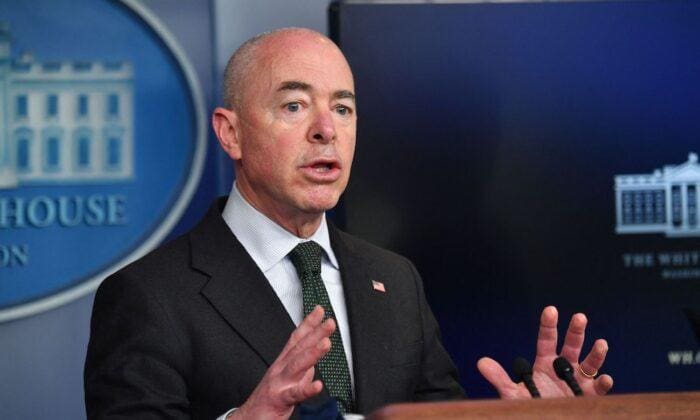As is somewhat normal for a decennial redistricting cycle, there has been a steady stream of announcements from state lawmakers indicating they will not be seeking re-election.
This sets the stage for a potentially contentious primary and general election cycle in 2022, on the heels of new district boundaries as well as a tumultuous series of legislative sessions.
Texas Senate
In the Texas Senate, Republicans hold a majority of 18 seats, compared to Democrats’ 13 seats. Those numbers may change once the final redistricting map for new Senate district boundaries is approved.
The currently proposed redistricting map for new Senate district boundaries is drawn favorably to add an additional Republican to the majority with regard to Texas Senate District 10, currently represented by Democrat State Sen. Beverly Powell (Burleson). The proposed boundaries add in counties that voted for Republicans up and down the ballot in recent election history, making it an uphill battle for Democrats.
In early July, Republican State Sen. Jane Nelson (Flower Mound) announced she would not be seeking re-election to Texas Senate District 12. She was first elected in 1992 and has been the chief budget writer for the Senate since 2014.
In early June, Republican State Sen. Dawn Buckingham (Lakeway) announced she was running for Texas land commissioner after current Commissioner George P. Bush announced his intention to challenge Ken Paxton (R) for Texas attorney general. Buckingham currently represents Texas Senate District 24, which spans from Abilene to west of Austin.
Texas House of Representatives
As it stands now, 82 of the 150 House districts are currently represented by Republicans, including the House Speaker Dade Phelan. Democrats represent 66 of the districts, and the remaining two are currently in the midst of special elections to fill vacancies.
Reportedly, Phelan has been given a list of at least 20 names of lawmakers who have no intention of returning.
The proposed redistricting map for House district boundaries has not yet been made publicly available. It is expected that once public, and once final, additional announcements will be made from lawmakers who have no interest in running for re-election within their new district boundaries. Despite this, several Republican lawmakers have already announced their intention to not seek re-election.
Two members of the Texas Freedom Caucus have announced that they will not be returning.
The chairman of the House Homeland Security and Public Safety Committee, State Rep. James White (R–Hillister), announced in June he intended to challenge Sid Miller (R) for Texas agriculture commissioner. White was first elected in 2010.
The chairman of the House General Investigating Committee, State Rep. Matt Krause (R–Haslet), announced his intention to challenge Ken Paxton (R) for Texas attorney general. Krause was first elected in 2013. He joined two challengers that were already in the race.
Some Republican lawmakers have announced they will be running for office in the upper legislative chamber.
Republican State Rep. Tan Parker (Flower Mound) announced in early July that he was running for Senate District 12, which is being vacated by Nelson. Parker was first elected in 2007.
On Monday, Republican State Rep. Phil King (Weatherford) announced he was running for Senate District 10, challenging the Democrat incumbent, Powell, based on a favorable proposed redistricting map for a Republican. He joins an already announced Republican challenger in Warren Norred, an Arlington attorney.
Some key Republican House leadership members have also recently announced they will not be seeking re-election.
The current House State Affairs Committee chairman, State Rep. Chris Paddie (Marshall), announced last week he would not seek another term, having previously announced he would. This came at the heels of being censured by his home county’s Republican Executive Committee and having been the culprit for the legislative demise of a ban on taxpayer-funded lobbying. Paddie currently represents Texas House District 9 in East Texas. It is likely that the district will be a casualty of the redistricting process and be moved to reflect population shifts to other parts of the state.
The current House Republican Caucus chairman, State Rep. Jim Murphy (Houston), announced he will not be seeking re-election, even though he had previously indicated he would. Murphy was first elected in 2006 and currently represents Texas House District 133 in the City of Houston. He was notorious for routinely voting against many of his own Republican colleagues and against the legislative priorities of his own political party.
Other House Republican lawmakers who have announced they will not be returning are State Reps. Ben Leman (Iola) and Scott Sanford (McKinney). Leman was first elected in 2018 and currently represents Texas House District 13. Sanford was first elected in 2013 and currently represents Texas House District 70.
Thus far, three House Democrat lawmakers have also announced they will not be returning.
In late June, State Rep. John Turner (D–Dallas) said he would not seek re-election. Turner flipped a formerly Republican-held seat in 2018 for Texas House District 114, which currently covers portions of northwest Dallas to Lake Highlands.
In the midst of a quorum break, State Rep. Michelle Beckley (D–Carrollton) decided she would run for U.S. Congress, challenging freshman Republican Beth van Duyne for Texas Congressional District 24. Beckley flipped a previously held Republican seat in the 2018 election, ousting former State Rep. Ron Simmons. Beckley narrowly held on to re-election in 2020.
Austin-area State Rep. Celia Israel (D) confirmed rumors that have been floating about for months that she intended to run for mayor of the City of Austin. Though she cannot actually file for the position until July of 2022, the current mayor, Steve Adler, is term-limited. Many other notable names have been floated as potentially vying for the seat.
More Announcements Forthcoming
All of these announcements can certainly change, as they have come without the final approval of redistricting maps.
It is expected that more announcements will be forthcoming as the redistricting process is completed and final maps are approved.
All of this sets the stage for what is likely to be a contentious primary and general election cycle in 2022 where, almost inevitably, the proverbial “house of cards” of the Texas Legislature is shuffled.
A list of announced candidates for various statewide and legislative offices in Texas can be found here.





